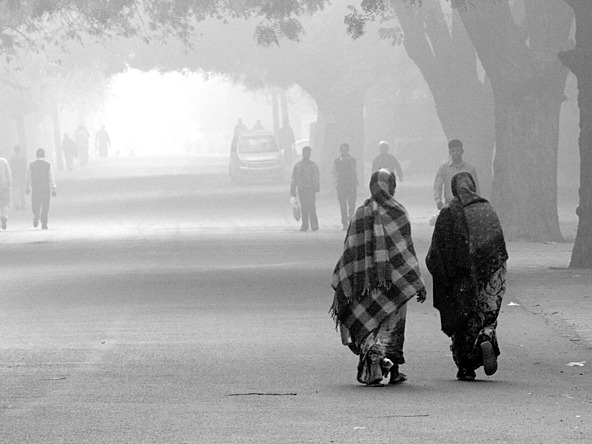FEATURE2 October 2019
Behind the mask
x Sponsored content on Research Live and in Impact magazine is editorially independent.
Find out more about advertising and sponsorship.
FEATURE2 October 2019
x Sponsored content on Research Live and in Impact magazine is editorially independent.
Find out more about advertising and sponsorship.
Polluted air is a huge problem in India, but there is a cultural reluctance to wear face masks, as research from Ipsos Mori and Reckitt Benckiser found.

As collective concern for our environment gathers apace, we have never been so conscious of the indelible footprint that we are leaving on our planet. But how often do we pause to reflect on our own longevity?
Air pollution is an invisible killer and has been described as causing a ‘silent genocide’ around the world – the World Health Organization (WHO) estimates that it kills more than seven million people globally each year (either as a result of exposure to outdoor air pollution or from household exposure to smoke from dirty cooking stoves and fuels). Of the top 50 most polluted cities, 22 are in India and it’s estimated that 40% of children in Delhi are living with reduced lung capacity.
When the Air Quality Index (AQI) in London reaches 70, this is considered unacceptably high. In 2017, air pollution levels in Delhi hit an AQI of 800, which was – literally – off the scale.
With air pollution levels on the rise in India, Reckitt Benckiser (RB) identified the need to encourage people to protect themselves from the harmful levels of particulate matter (PM2.5 ). Despite having a presence in the face mask space with its Siti brand, uptake was low, so RB partnered with Ipsos to find out what underpins the reluctance to wear face masks and drive behavioural change.
RB and Ipsos developed a research strategy involving ethnography, qualitative diaries and quantitative research. The research identified two significant barriers to people wearing masks. First, there is a cultural desire to conform, so people are reluctant to wear masks in case others wonder what is wrong with them – for example, whether they are carrying an infectious disease.
Second, there is an apparent blind faith in other methods of protection: shampoo is believed to rid the body of the harmful effects of pollution, sunglasses are worn to prevent pollution through the eyes, and there is a belief that plants and trees clean the air perfectly well, so negating the need for masks. In another example, a man doing outdoor yoga claimed with great pride that the bodies of those who do yoga have evolved to cope with pollution.
Ipsos used the COM-B (capability, opportunity, motivation) behavioural framework to determine who to target, which messages would resonate with people most and which touchpoints would encourage them to wear face masks.
By identifying the behavioural levers that were most likely to change behaviour, RB developed its campaign. It started with some hard-hitting outdoor advertising placed on the busiest, most polluted streets. The message was that breathing the levels of pollution in Delhi was equivalent to reducing lung capacity by up to half a lung, and this was delivered by a smart-looking (and slightly cheeky) boy.
To tap into the capability side of the behaviour, RB set out to teach people that the AQI could be measured. Instead of residents looking out of their window to assess whether it was a polluted day, they could look on their phone and find out exactly how polluted it was. RB signed up a network of Uber drivers to measure the pollution in different parts of Delhi as they drive around.
The campaign was followed with a widespread social media rollout aimed at normalising mask use, because if residents were going to start wearing masks, it really needed to be seen as normal behaviour.
The increase in mask sales demonstrates the level of success. However, this project was about more than selling masks; using business to help solve some of society’s bigger problems, and protecting people against pollution is at the top of that list.
Victoria Edmonds is director and Oliver Sweet is head of ethnography at Ipsos Mori
This article was first published in Impact.
0 Comments